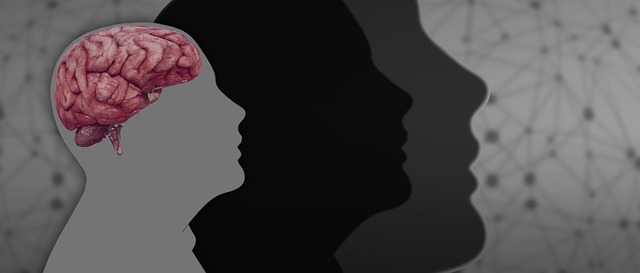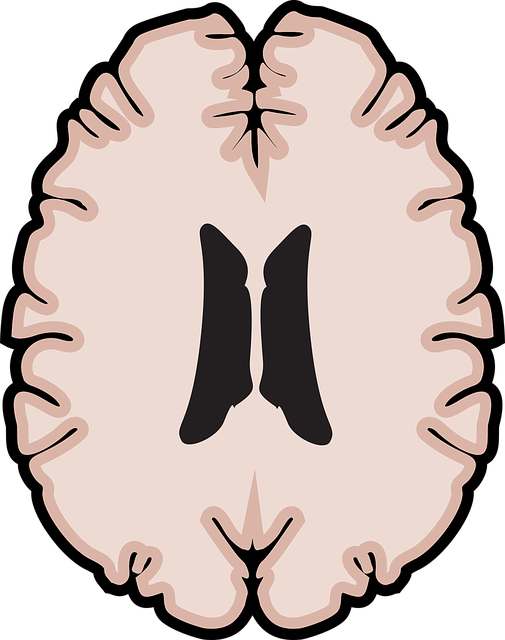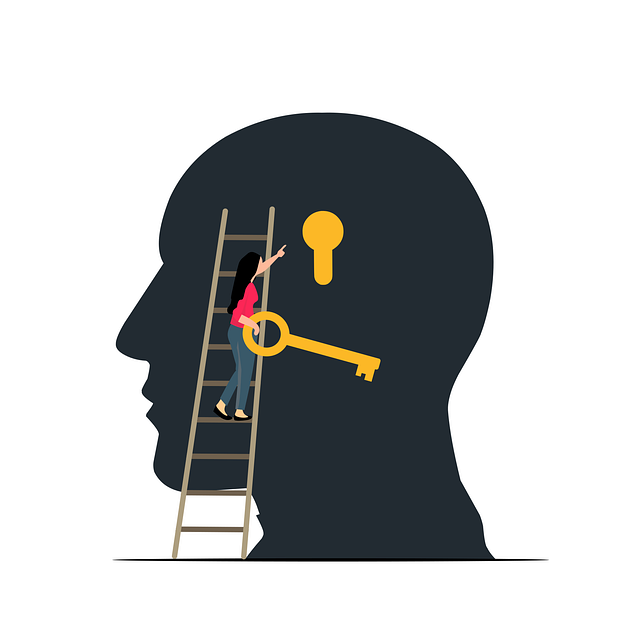Cultural competency in healthcare is crucial for providing effective therapy to adolescent teens, who face unique challenges tied to their diverse backgrounds and socio-economic contexts. Integrating mindfulness practices into mental health professional training creates safe, inclusive spaces where teens feel understood and supported. This approach enhances self-awareness, emotional awareness, and coping mechanisms, leading to positive outcomes in adolescents' mental health journeys. Mindfulness techniques, when incorporated into teen patients' lives, foster resilience and coping mechanisms that promote overall well-being, reducing stress, anxiety, and depression symptoms. Healthcare Provider Cultural Competency training should emphasize mindfulness strategies tailored to diverse patient populations, self-care practices for healthcare providers, and public awareness campaigns to create an inclusive healthcare environment. Despite time constraints and heavy caseloads, integrating mindfulness-based therapy offers a sustainable solution, empowering teens through culturally sensitive means to express themselves and strengthen their cultural identity while improving mental wellness.
“Cultural competency in healthcare is vital, especially when addressing the unique needs of adolescent teens. This article explores strategies to enhance cultural sensitivity among providers, with a focus on mindfulness practices that can significantly impact teen mental health. We delve into effective training approaches, navigate potential challenges, and highlight empowering therapy methods tailored for culturally diverse teenage patients. By understanding the importance of cultural competency, we strive to improve healthcare access and outcomes for this vulnerable population.”
- Understanding Cultural Competency in Healthcare: A Need for Adolescent Care
- The Impact of Mindfulness Practices on Teen Mental Health
- Training Approaches: Effective Strategies for Providers
- Addressing Challenges and Barriers to Implementation
- Empowering Teens Through Culturally Sensitive Therapy
Understanding Cultural Competency in Healthcare: A Need for Adolescent Care

In the realm of healthcare, cultural competency is no longer a nice-to-have; it’s a necessity, especially when providing care for adolescent teens. Understanding and respecting diverse cultural backgrounds, beliefs, and practices are essential to building trust and delivering effective therapy for young individuals. Adolescents, by their nature, are navigating a complex period of emotional regulation, identity formation, and stress management—all while potentially facing unique challenges tied to their cultural heritage or socio-economic context.
When mental health professionals integrate mindfulness practices into their approach, they can better support these young patients. Mindfulness, as a tool, allows for increased self-awareness, improved emotional awareness, and enhanced coping mechanisms, all of which are crucial components in managing stress and mitigating risks. Moreover, cultivating cultural competency through training programs that focus on risk management planning for mental health professionals enables them to create safe, inclusive spaces where adolescents feel understood and empowered, fostering positive outcomes in their mental health journeys.
The Impact of Mindfulness Practices on Teen Mental Health

Mindfulness practices have gained significant attention in recent years as a powerful tool to enhance teen mental health. Therapy for adolescent teens incorporating mindfulness has shown promising results in improving emotional regulation and reducing stress, anxiety, and symptoms of depression. By encouraging self-care practices, these techniques help healthcare providers prevent burnout, which is particularly prevalent among those working with young people.
Incorporating mindfulness into the lives of teen patients can foster resilience and coping mechanisms that extend beyond traditional therapy sessions. This approach promotes a sense of calm, enhances focus, and encourages emotional awareness, all of which are essential components for adolescents navigating personal challenges. Moreover, it contributes to overall well-being, enabling healthcare providers to offer more sustainable support within their care plans.
Training Approaches: Effective Strategies for Providers

Healthcare Provider Cultural Competency training should incorporate effective strategies that cater to diverse patient populations, especially adolescent teens. One such approach is integrating mindfulness techniques into therapy sessions. Mindfulness has been shown to enhance cultural sensitivity and understanding by promoting non-judgmental awareness of one’s thoughts and feelings. This can be particularly beneficial in building rapport with teenage patients from different backgrounds, encouraging open communication, and tailoring therapeutic interventions to their unique needs.
Additionally, training should emphasize the importance of self-care practices for healthcare providers. Burnout is a significant concern, especially among professionals working directly with adolescent teens. Encouraging balanced lifestyles, stress management techniques, and regular debriefing sessions can contribute to improved provider well-being, ensuring sustained cultural competency over time. Public awareness campaigns development can also play a crucial role in promoting these initiatives, fostering an inclusive healthcare environment that respects and values diversity.
Addressing Challenges and Barriers to Implementation

Implementing cultural competency training within healthcare providers’ practices is a multifaceted challenge. One significant barrier lies in balancing the urgent need for such training with existing demands on healthcare professionals’ time and resources. Many providers, particularly those working with adolescent teens, juggle heavy caseloads and diverse patient needs, making it challenging to allocate adequate time and energy to cultural competency initiatives. However, integrating mindfulness practices into their workflow can offer a sustainable solution.
Mindfulness-based therapy for adolescent teens not only enhances emotional healing processes but also supports depression prevention and mood management—crucial aspects of cultural competency. By incorporating techniques like mindful communication and empathy-building exercises, healthcare providers can create safer, more supportive therapeutic spaces. This, in turn, fosters better patient engagement and outcomes, addressing a core challenge in implementing cultural competency training.
Empowering Teens Through Culturally Sensitive Therapy

Empowering teens through culturally sensitive therapy is a powerful approach to fostering mental wellness and inner strength development. By incorporating mindfulness techniques into therapeutic practices, healthcare providers can create a safe and supportive environment for adolescents from diverse cultural backgrounds. This involves understanding and respecting each teen’s unique perspective, values, and beliefs, allowing them to express their emotions freely without fear of judgment.
Culturally sensitive therapy encourages teens to explore and process their experiences through creative means, such as mental wellness journaling exercises guidance or even participating in a mental wellness podcast series production. These activities not only help teenagers reflect on their cultural identity but also teach them valuable coping strategies and self-expression techniques that can enhance their overall mental wellness journey.
Healthcare provider cultural competency training is a vital game-changer in enhancing adolescent care. By understanding and addressing cultural nuances, providers can offer more effective therapy for teenage mental health issues, incorporating mindfulness practices that have proven benefits. Overcoming implementation challenges requires dedicated efforts to ensure culturally sensitive approaches become the norm, empowering teens to receive the best possible care tailored to their diverse backgrounds.














